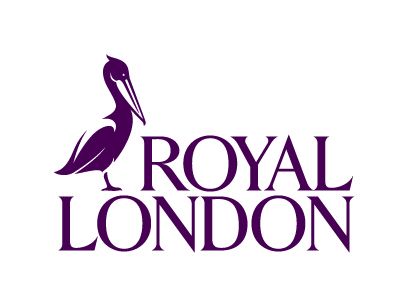What do employees expect from workplace benefits?

Employees want more than just a pension
Years ago, simply having access to a pension would have been a significant workplace benefit, but now changes in employment trends and work practices mean people expect much more than that from an employer.
One reason for this change is that providing a pension is now a legal requirement for companies, with employers also obliged to contribute to their employees’ pension savings.
So it is little wonder that additional benefits are now being provided alongside a pension to entice workers to join and stay with a company.
Tom McPhail, director of public affairs at the Lang Cat, says: “Employers offer a spectrum of benefits alongside their workplace pensions, as opposed to being integrated into pensions the way the old death-in-service schemes were offered.
“These include non-pension workplace savings such as Isas, Save As You Earn schemes (such as the sidecar scheme currently being trialled by Nest), healthcare including private medical and mental health counselling services, cycle-to-work schemes, electric car purchases and even discounted (or free) financial advice services.
There is a greater focus on ensuring employees are in the best position they can be to make decisions about their bills and their retirement savings
“All these services are separate to the pension but increasingly they are integrated into workplace benefits platforms alongside the pension.”
This change is comparatively recent, says Sarah Pennells, consumer finance specialist at Royal London. A move that has been helped by increasing innovation in the fintech sector.
She adds: “The financial challenges that resulted from the Covid pandemic and the impact of the current cost of living crisis have meant that there is a greater focus on ensuring that employees are in the best position they can be to make decisions about their day-to-day bills and spending, as well as their retirement savings.
“Technology and developments such as smart phone apps linked to pension scheme websites have helped make pensions and employee benefits natural bedfellows, as information becomes easy to access whenever the scheme member wants to access it, and in an easily digestible format.”
Lifetime allowance
Legislation has also been a major leader of change in the way pensions and benefits are aligned, as a number of benefits can no longer be offered as part of the pension scheme itself due to auto-enrolement, says Steve Cave, director at Evelyn Partners.
He adds: “By law, employees now have to be enrolled into a pension. But if they are close to the lifetime allowance, they may not be able to access other benefits as part of the pension, which would be discriminatory. So, legislation has forced these benefits apart from the pension scheme.”
Andy Butcher, branch principal and chartered financial planner at Raymond James, agrees, adding that death-in-service schemes, for example, should be written in such a way that they do not form part of the deceased’s lifetime allowance.
Giving employees a sense of financial security has never been more important
He says: “Under traditional death in service schemes that are written under the company’s pension scheme, any benefits are paid into the pension trust. This means that when distributed to the beneficiaries they form part of the deceased pension lifetime allowance. While for many employees this isn’t an issue, for directors or high earners on attractive death-in-service policies, this can cause a problem.
“An alternative to writing under the pension trust is to set up an excepted life policy. This is where the policy is written under a specific trust where death benefits are not part of the pension scheme.
"It’s a similar trust to a relevant life policy, which would be set up for an individual director, but excepted life policies are for group schemes. Premiums remain tax deductible for the company, so there really is no difference from the normal death-in-service schemes other than the way death benefits are treated under pension rules.”
Wellbeing
This would seem a sensible separation as a starting point, but companies are increasingly asking what else they can do, and how they can do things differently, says Cave.
He highlights the pandemic as creating a push for employers to look not just at what benefits were available to their employees, but also how they work.
Traditional workplace approaches do not work anymore
Cave describes the four elements of wellbeing – financial, mental, physical and environmental – as four parts of a wheel. If any of these elements is out of balance, “you’re in for a bumpy ride”.
He adds: “Traditional workplace approaches do not work anymore. In pensions, for example, companies are educating employees on pensions. During the pandemic, people became more aware of the environment, with fewer planes flying, and ESG investments and carbon-neutral strategies had much more engagement.”
Competition to find and keep the best staff is also forcing employee benefits changes. But there are other key drivers too. For example, the cost of living crisis – with inflation at levels not seen for nearly 40 years – means financial wellbeing packages will be key within any workplace benefits scheme.
Nearly one in five people (18 per cent) were forced to dip into savings in the last week of August to cover living costs, according to ONS figures. So, free or discounted access to financial advice is going to help many employees navigate the difficult course so many of us face over the coming months.
Money worries impacts productivity
However, this does not just benefit employees. Employers will also gain from having employees who are less concerned about money. Research from Aegon found that poor financial wellbeing in the workforce is costing British businesses more than £6bn in lost revenues each year as workers take time off or are distracted from their work by financial anxiety.
Andy Dickson, Aegon's master trust strategic development director, said: “Aegon recently published a white paper that identifies how ‘altruistic capital’ strategies, with workplace pensions at their core, can give companies a competitive edge by understanding and addressing workers’ financial needs in a holistic way.
“This could also prove vital to attracting and retaining the best talent in a fiercely competitive recruitment environment as job vacancies surpass pre-pandemic levels.”
The financial wellbeing of employees is under pressure on all fronts, says Dickson, with nearly half (49 per cent) of UK workers now less confident about retiring as they believe their current pension provision will not be enough to provide a good standard of living by the time they retire.
The workplace pension is still the most desirable and valuable benefit
Dickson notes: “As well as struggling to make ends meet now, four in 10 people say they have less than £100 left at the end of the month – all this is affecting levels of anxiety and, in turn, mental wellbeing.
“Giving employees a sense of financial security has never been more important. Since March 2020, the mental and physical wellbeing of employees has been in sharp focus, and there is a growing need to consider financial wellbeing too.
"Benefits packages are front and centre in this, with employees rethinking their attitude to work and the type of employer they want to work for and employers now increasingly viewing workplace pensions through a financial-wellbeing lens."
Dickson adds: “Employers can make a huge, and positive, difference to employee morale and engagement by redesigning their benefits package from a financial wellbeing perspective, focusing on better financial outcomes. The workplace pension is still the most desirable and valuable benefit. It could, and should, be deployed much more effectively to provide a deeper sense of financial security for employees.”
Many people are making tough decisions, and for some that could include pausing their pension contributions
Royal London's Pennells agrees, and suggests that financial wellbeing services can help employees become more confident about budgeting, everyday money management and the options for repaying debt, if that is an issue.
She adds: “It can also give them an understanding of the importance of, for example, saving for an emergency and the role of protection in building a financial safety net.
“In the current climate, many people are making tough decisions about their finances, and for some that could include pausing their pension contributions. Employees who feel more confident about managing their day-to-day money may be in a better position to focus on their long-term finances once the impact of the cost of living crisis eases.”
Sidecar savings
Pension saving is important, but as outlined above, many people will have more immediate needs in the coming years. It is for this reason that Nest, the UK’s largest pensions provider, has started piloting a payroll savings scheme alongside its pension.
The so-called ‘sidecar’ scheme is examining whether offering a payroll saving scheme as a default option alongside the pension will help workers who want to build up emergency savings that are accessible when they need them.
The Nest annual report for 2021-22 states: “Our public-benefit research and innovation centre, Nest Insight, continues to work with policymakers, industry and academics to understand the challenges facing those who may be at risk of missing out on the full benefits of persistent saving.
“For example, Nest Insight’s research on sidecar savings, where pension scheme members are able to add payroll contributions to a savings account that can be accessed for near-term needs, is surfacing ways in which the industry could help improve people’s financial resilience. It’s also looking at ways to increase member engagement and help employers support their people.”
Nest is advancing research in other areas too, such as how its members will access their saving when they reach retirement age, and “how the changing nature of retirement is shaping this”.
Other plans in the pipeline include measures to reduce costs and improve services to members, employers and intermediaries through changes to its platform.
You can have a company that has a great array of products but people feel hard done by
It is also working with Penfold, a fintech pension provider, and Moneyhub, an open data and payments platform, in two pilot schemes to test new forms of flexible pension saving nudges for the self-employed, who tend to have variable and uncertain income, often leading to much lower pension savings levels.
Nest has also partnered with the HarbourVest Partners fund to provide access to private equity investments. Nest will be investing at least £1.5bn in the asset class by early 2025, with the longer-term target of around 5 per cent of its portfolio in private equity – a sector that has seen good returns in recent years.
However, no matter how good or varied the benefits on offer from a company are, they must be communicated well to the workforce.
“Protection is king,” says Cave “and you can have a company that has a great array of products but people feel hard done by, while others may not have many benefits but they have good communications.”
Ultimately, using the services of an adviser to help get these messages across effectively is a sensible solution.
Alison Steed is a freelance journalist






